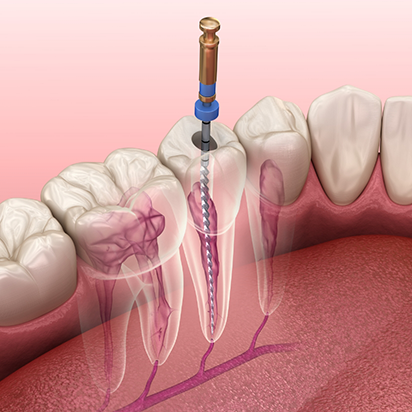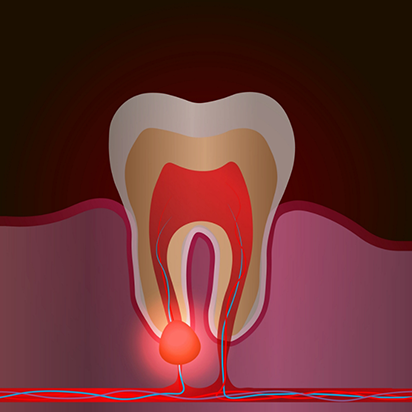Root Canal Treatment Morgan Hill
Addressing Tooth Pain at Its Source

Root canals have a pretty unfair reputation; despite everything you may have seen or heard on television or through the grapevine, these procedures aren’t super painful or frightening at all! In fact, they’re arguably one of the most straightforward and common dental procedures performed, and they can help to keep a compromised tooth from needing to be extracted. To learn more about root canal treatment or to schedule an appointment, give our Morgan Hill dental office a call today.
Why Choose Morgan Hill Dental Care for Root Canal Treatment?
- Comfortable Dental Office with Patient-Friendly Amenities
- Same-Day and Saturday Emergency Appointments
- High-Quality Dental Crown Restorations Available
What Happens During a Root Canal?

A root canal is a fairly straightforward process. To put it simply, it involves us carefully making a small hole in the affected tooth in order to access its pulp, or innermost chamber, that’s suffering from severe infection. Once we’ve reached the pulp, we can begin to clear out all of the infected tissue and tooth structure, before sanitizing the tooth and filling the hole with a special, biocompatible material called gutta-percha. Once the tooth has been treated, it’s normally fitted with a dental crown to ensure its protection and allow it to healthily remain within the mouth.
Are Root Canals Painful?

Many endodontic procedures are performed to relieve the pain of toothaches caused by pulp inflammation or infection. With modern techniques and anesthetics most patients report that they are comfortable during the procedures. For the first few days after treatment, your tooth may feel sensitive, especially if there was pain or infection before the procedure. This discomfort can be relieved with over-the-counter or prescription medications. Your tooth may continue to feel slightly different from your other teeth for some time after your endodontic treatment is completed. However, if you have severe pain or pressure, or pain that lasts more than a few days, call our office at once, as it might be a sign of a complication.
Can All Teeth Be Treated with Root Canals?

Most teeth can be treated via root canal therapy. Occasionally, a tooth cannot be saved because the root canals are not accessible, the root is severely fractured, the tooth doesn’t have adequate bone support, or the tooth cannot be restored. However, advances in endodontics are making it possible to save teeth that even a few years ago would have been lost. And, when endodontic treatment is not effective, endodontic surgery may be able to save the tooth.
I Need a Checkup & Cleaning I am Worried About Gum Disease I Need a Dentist for My Child I Have a Cavity or Broken Tooth I am Missing One or More Teeth I Want to Enhance My Smile I Want a Straighter Smile I am Scared of the Dentist I Have a Dental Emergency Oral Surgery View Our Services
